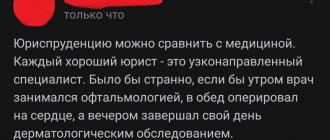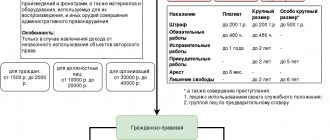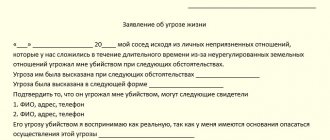What is Article 228 of the Criminal Code of the Russian Federation about?
Article 228
provides punishment for the illegal acquisition, storage, transportation, manufacture, processing of narcotic drugs, psychotropic substances or their analogues, as well as plants or their parts containing these substances (hereinafter referred to as narcotic drugs).
Article 228.1
(she was charged with Ivan Golunov) - for the production, sale or transfer of narcotic drugs.
Article 228.2
— for violating the rules of drug trafficking.
Article 228.3 and 228.4
- for the illegal acquisition, storage, transportation, production, sale or transfer of drug precursors (that is, substances used to manufacture drugs).
In addition to Article 228 with all its parts, penalties related to drug trafficking are contained in Articles 229–233 of the Criminal Code.
The Code of Administrative Offenses also provides for administrative penalties for drug-related crimes. In particular, illicit trafficking in narcotic and psychotropic substances (Article 6.8 of the Administrative Code), propaganda of narcotic drugs (6.13), consumption in public places (20.20).
What is important to know:
What are Articles 228 and 228.1 of the Criminal Code of the Russian Federation about?
- Article 228 of the Criminal Code of the Russian Federation provides for liability for the illegal acquisition, storage, transportation, production, processing without the purpose of sale of narcotic drugs, psychotropic substances or their analogues in a significant amount, as well as the illegal acquisition, storage, transportation without the purpose of sale of plants containing narcotic drugs or psychotropic substances substances or parts thereof containing narcotic drugs or psychotropic substances.
- Article 228.1 of the Criminal Code of the Russian Federation provides for liability for the illegal production, sale or transfer of narcotic drugs, psychotropic substances or their analogues, as well as the illegal sale or transfer of plants containing narcotic drugs or psychotropic substances, or their parts containing narcotic drugs or psychotropic substances.
What is the punishment?
The maximum penalty provided for in Article 228 of the Criminal Code of the Russian Federation is 15 years in prison.
The maximum punishment provided for in Article 228.1 of the Criminal Code of the Russian Federation is life imprisonment. CRIMINAL LAWYER call now: ☎ 8 (495) 532-75-40
What are your rights when arrested?
- you have the right to one telephone conversation in order to notify your close relatives or close persons about the detention and location no later than 3 hours from the moment of detention (Article 96 of the Code of Criminal Procedure of the Russian Federation);
- you have the right to silence, including the right not to testify against yourself and your family (Article 51 of the Constitution of the Russian Federation);
- you have the right to receive the assistance of a lawyer from the moment of detention and to refuse to give explanations and testimony without the presence of a lawyer (Article 16 of the Code of Criminal Procedure of the Russian Federation);
- you have the right to submit statements, complaints, petitions, including appealing the actions or inactions of police officers to a higher authority or a higher official, to the prosecutor's office or in court (Articles 120-124 of the Code of Criminal Procedure of the Russian Federation);
- you have the right to the services of an interpreter (Article 59 of the Code of Criminal Procedure of the Russian Federation);
- you have the right to familiarize yourself with all documents drawn up and record your objections in them;
- If during the detention process physical force was used against you (for example, beatings), and you believe that this caused harm to your health, you can demand that an ambulance doctor be called to the premises of the internal affairs bodies. If you have left the premises of the police department, you also have the right to immediately contact a specialist in order to examine and record the injuries you have received (this can be either an ambulance doctor or a doctor at any emergency room).
Typical mistakes during arrest
- by not requesting that a detention report be drawn up against you when you are actually detained, you contribute to illegal detention without legal grounds;
- not realizing the seriousness, as well as the consequences of the moment of your detention or the detention of your loved ones, you are wasting time to carry out effective protection;
- without requiring, upon arrest, to invite a defender (lawyer) and notify relatives, you are left alone with the current situation and the fact that there is nowhere to wait for help;
- When giving initial explanations or testimony that has not been agreed upon with the defense attorney, remember: they may subsequently form the basis of the accusation;
- By signing documents without reading them, you yourself are helping to collect evidence against yourself;
- By agreeing to any proposals from operatives and investigators, you are working in the interests of the prosecution, but not your own!
Contact a lawyer immediately as soon as you become aware of an unpleasant event or the opportunity arises. Timely seeking help from a professional is the key to successful defense!
Assistance of a lawyer under Art. 228 and 228.1 of the Criminal Code of the Russian Federation:
- Drug lawyers, drug defense
- Help from a criminal lawyer
- Lawyer under Art. 228 of the Criminal Code of the Russian Federation Possession and acquisition of drugs
- Lawyer under Art. 228.1 of the Criminal Code of the Russian Federation Sales and production of drugs
What punishment does violators face?
For the acquisition, storage, production of narcotic drugs without the purpose of sale (Article 228)
punishment is provided (depending on the size of the seized substances):
| Deprivation of liberty | Additionally | |
| To a significant extent | up to 3 years* | fine up to 40 thousand rubles, compulsory / corrective labor, restriction of freedom up to 3 years |
| Large size | from 3 to 10 years | fine up to 500 thousand rubles, restriction of freedom up to 1 year |
| In a particularly large size | from 10 to 15 years | fine up to 500 thousand rubles, restriction of freedom up to 1.5 years |
*in this case, imprisonment is not mandatory, but only one of the possible punishments
For illegal production and sale of drugs (Article 228.1)
The Criminal Code of the Russian Federation provides for imprisonment for up to 20 years, in exceptional cases up to life imprisonment.
| What is the sentence for violators under Art. 228.1 | Deprivation of liberty |
| Without aggravating circumstances | from 4 to 8 years |
| Sales in pre-trial detention centers, administrative buildings, sports, educational and transport facilities, through the media and the Internet | from 5 to 12 years |
| By a group of persons by prior conspiracy, in a significant amount | from 8 to 15 years |
| By an organized group, on a large scale, using official position, to a minor | from 10 to 20 years |
| In a particularly large size | from 15 to 20 years, for life |
Additionally, it is possible to impose a fine of up to 1 million rubles, restriction of freedom, deprivation of the right to hold certain positions or engage in certain activities.
The Criminal Code provides for exemption from criminal liability for the illegal acquisition, storage, transportation, manufacture and processing of drugs or precursors for persons who voluntarily surrendered these substances and actively contributed to the disclosure or suppression of crimes related to drug trafficking, the exposure of those who committed them, and the detection property obtained by criminal means. Illegal production and sale of narcotic substances or precursors (Articles 228.1 and 228.4) do not provide for exemption from liability.
Can I give a suspended sentence or a fine under Part 3 of Art. 30 p. "g" part 4 of article 228.1 of the Criminal Code of the Russian Federation?
Can I give a suspended sentence or a fine under Part 3 of Art. 30 p. "g" part 4 of article 228.1 of the Criminal Code of the Russian Federation?
Lawyer Lebedev Z.S.
Good afternoon According to Part 4 of Article 228.1 of the Criminal Code, illegal production, sale or transfer of narcotic drugs, psychotropic substances or their analogues, as well as illegal sale or transfer of plants containing narcotic drugs or psychotropic substances, or their parts containing narcotic drugs or psychotropic substances committed: a) by an organized group; b) by a person using his official position; c) by a person who has reached the age of eighteen, in relation to a minor; d) on a large scale - shall be punishable by imprisonment for a term of ten to twenty years with deprivation of the right to hold certain positions or engage in certain activities for a term of up to twenty years or without it and with a fine in the amount of up to one million rubles or in the amount of wages or other income of the convicted person for a period of up to five years or without it. According to Part 3 of Article 30 of the Criminal Code, intentional actions (inaction) of a person directly aimed at committing a crime are recognized as an attempted crime, if the crime was not completed due to circumstances beyond the control of this person. According to Part 3 of Article 66 of the Criminal Code, the term or amount of punishment for an attempted crime cannot exceed three quarters of the maximum term or amount of the most severe type of punishment provided for by the corresponding article of the Special Part of this Code for the completed crime. According to Article 73 of the Criminal Code, if, having imposed correctional labor, restrictions on military service, detention in a disciplinary military unit or imprisonment for a term of up to eight years, the court comes to the conclusion that it is possible to correct the convicted person without actually serving the sentence, it decides to consider the imposed punishment conditional. A suspended sentence is not assigned to: a) those convicted of crimes against the sexual integrity of minors under fourteen years of age; a.1) convicted for crimes provided for in parts one and two of Article 205.1, Article 205.2, part two of Article 205.4, parts one to three of Article 206, Article 360 of this Code; b) when committing a serious or especially serious crime during the probationary period, with a conditional sentence imposed for committing an intentional crime, or during the unserved part of the sentence imposed for committing an intentional crime, with conditional early release. When assigning a suspended sentence, the court takes into account the nature and degree of social danger of the crime committed, the identity of the perpetrator, including mitigating and aggravating circumstances. When assigning a suspended sentence, the court sets a probationary period during which the suspended sentenced person must prove his correction by his behavior. In case of imposition of imprisonment for a term of up to one year or a more lenient type of punishment, the probationary period must be no less than six months and no more than three years, and in case of imposition of imprisonment for a term of more than one year - no less than six months and no more than five years . The probationary period is calculated from the moment the sentence enters into legal force. The probationary period includes the time elapsed from the date of pronouncement of the sentence. If a sentence is imposed in the form of detention in a disciplinary military unit, the conditional probationary period is established within the limits of the remaining period of military service on the day the verdict is announced. With a suspended sentence, additional types of punishment may also be imposed. The court, when assigning a suspended sentence, imposes on the suspended sentenced person, taking into account his age, ability to work and state of health, the performance of certain duties: not to change his permanent place of residence, work, study without notifying the specialized government body that monitors the behavior of the suspended sentenced person, not to visit certain places, undergo treatment for alcoholism, drug addiction, substance abuse or a sexually transmitted disease, work (get a job) or continue studying in a general education organization. The court may impose on the conditionally convicted person the performance of other duties that contribute to his correction. Control over the behavior of a conditionally convicted person is carried out by an authorized specialized state body, and in relation to military personnel - by the command of military units and institutions. During the probationary period, the court, on the proposal of the body monitoring the behavior of the conditionally convicted person, may cancel in whole or in part or supplement the duties previously established for the conditionally convicted person. According to Articles 61 and 62 of the Criminal Code, the following are recognized as mitigating circumstances: a) the commission of a crime of minor or moderate gravity for the first time due to a random combination of circumstances; b) the minority of the perpetrator; c) pregnancy; d) the presence of young children with the perpetrator; e) committing a crime due to a combination of difficult life circumstances or out of compassion; f) committing a crime as a result of physical or mental coercion or due to financial, official or other dependence; g) commission of a crime in violation of the conditions of legality of necessary defense, detention of the person who committed the crime, extreme necessity, justified risk, execution of an order or instruction; h) illegality or immorality of the behavior of the victim, which was the reason for the crime; i) confession, active assistance in solving and investigating a crime, exposing and prosecuting other accomplices in a crime, searching for property obtained as a result of a crime; j) provision of medical and other assistance to the victim immediately after the commission of a crime, voluntary compensation for property damage and moral harm caused as a result of the crime, and other actions aimed at making amends for the harm caused to the victim. When assigning a punishment, circumstances not provided for in the first part of this article may be taken into account as mitigating factors. If a mitigating circumstance is provided for by the relevant article of the Special Part of this Code as a sign of a crime, it in itself cannot be taken into account again when assigning punishment. In the absence of aggravating circumstances, the term or amount of punishment cannot exceed two-thirds of the maximum term or amount of the most severe type of punishment provided for by the relevant article of the Special Part of this Code. In the case of concluding a pre-trial agreement on cooperation in the presence of mitigating circumstances provided for in paragraph “and” of part one of Article 61 of this Code, and in the absence of aggravating circumstances, the term or amount of punishment cannot exceed half the maximum term or amount of the most severe type of punishment provided for in the relevant article of the Special Part of this Code. The provisions of part one of this article do not apply if the corresponding article of the Special Part of this Code provides for life imprisonment or the death penalty. In this case, the punishment is imposed within the sanction of the relevant article of the Special Part of this Code. In the case of concluding a pre-trial agreement on cooperation, if the relevant article of the Special Part of this Code provides for life imprisonment or the death penalty, these types of punishment are not applied. In this case, the term or amount of punishment cannot exceed two-thirds of the maximum term or amount of the most severe type of punishment in the form of imprisonment, provided for by the relevant article of the Special Part of this Code. The term or amount of punishment imposed on a person in respect of whom a criminal case is considered in the manner prescribed by Chapter 40 of the Criminal Procedure Code of the Russian Federation cannot exceed two-thirds of the maximum term or amount of the most severe type of punishment provided for the crime committed, and in the case, specified in Article 226.9 of the Criminal Procedure Code of the Russian Federation - one-half of the maximum term or amount of the most severe type of punishment provided for the crime committed. According to Articles 61, 62, 64 of the Criminal Code, the following are recognized as mitigating circumstances: a) the commission of a crime of minor or moderate gravity for the first time due to a random combination of circumstances; b) the minority of the perpetrator; c) pregnancy; d) the presence of young children with the perpetrator; e) committing a crime due to a combination of difficult life circumstances or out of compassion; f) committing a crime as a result of physical or mental coercion or due to financial, official or other dependence; g) commission of a crime in violation of the conditions of legality of necessary defense, detention of the person who committed the crime, extreme necessity, justified risk, execution of an order or instruction; h) illegality or immorality of the behavior of the victim, which was the reason for the crime; i) confession, active assistance in solving and investigating a crime, exposing and prosecuting other accomplices in a crime, searching for property obtained as a result of a crime; j) provision of medical and other assistance to the victim immediately after the commission of a crime, voluntary compensation for property damage and moral harm caused as a result of the crime, and other actions aimed at making amends for the harm caused to the victim. When assigning a punishment, circumstances not provided for in the first part of this article may be taken into account as mitigating factors. If a mitigating circumstance is provided for by the relevant article of the Special Part of this Code as a sign of a crime, it in itself cannot be taken into account again when assigning punishment. In the presence of mitigating circumstances provided for in paragraphs “and” and (or) “k” of part one of Article 61 of this Code, and in the absence of aggravating circumstances, the term or amount of punishment cannot exceed two-thirds of the maximum term or amount of the most severe type of punishment provided for in the relevant article of the Special parts of this Code. In the case of concluding a pre-trial agreement on cooperation in the presence of mitigating circumstances provided for in paragraph “and” of part one of Article 61 of this Code, and in the absence of aggravating circumstances, the term or amount of punishment cannot exceed half the maximum term or amount of the most severe type of punishment provided for in the relevant article of the Special Part of this Code. The provisions of part one of this article do not apply if the corresponding article of the Special Part of this Code provides for life imprisonment or the death penalty. In this case, the punishment is imposed within the sanction of the relevant article of the Special Part of this Code. In the case of concluding a pre-trial agreement on cooperation, if the relevant article of the Special Part of this Code provides for life imprisonment or the death penalty, these types of punishment are not applied. In this case, the term or amount of punishment cannot exceed two-thirds of the maximum term or amount of the most severe type of punishment in the form of imprisonment, provided for by the relevant article of the Special Part of this Code. The term or amount of punishment imposed on a person in respect of whom a criminal case is considered in the manner prescribed by Chapter 40 of the Criminal Procedure Code of the Russian Federation cannot exceed two-thirds of the maximum term or amount of the most severe type of punishment provided for the crime committed, and in the case, specified in Article 226.9 of the Criminal Procedure Code of the Russian Federation - one-half of the maximum term or amount of the most severe type of punishment provided for the crime committed. In the presence of exceptional circumstances related to the goals and motives of the crime, the role of the perpetrator, his behavior during or after the commission of the crime, and other circumstances that significantly reduce the degree of public danger of the crime, as well as with the active assistance of a participant in a group crime in solving this crime, a punishment may be imposed below the lower limit provided for by the relevant article of the Special Part of this Code, or the court may impose a more lenient type of punishment than provided for by this article, or not apply an additional type of punishment provided for as mandatory. Both individual mitigating circumstances and a combination of such circumstances may be considered exceptional. Guilty of committing crimes provided for in Articles 205, 205.1, 205.2, 205.3, 205.4, 205.5, parts three and four of Article 206, part four of Article 211, Article 361 of this Code, or guilty of committing crimes related to terrorist activities provided for in Articles 277 , 278, 279 and 360 of this Code, a punishment cannot be imposed below the lower limit provided for by these articles, or a more lenient type of punishment than that provided for in the relevant article cannot be imposed, or an additional type of punishment provided for as mandatory cannot be applied. Thus, assigning you a suspended sentence is possible if the mitigating circumstances are recognized by the court as exceptional, and you will be sentenced to imprisonment for a term less than the minimum provided for in Part 4 of Article 228.1 of the Criminal Code, that is, up to 8 years of imprisonment.
Sincerely, lawyer Zakhar Lebedev, partner of the law firm Antonov and Partners.
Still have questions for your lawyer? Ask them right now here, or call us by phone in Moscow +7 (499) 288-34-32 or in Samara +7 (846) 212-99-71 (24 hours a day), or come to our office for a consultation (by pre-registration)!
How is the size of drugs determined?
Significant, large and especially large sizes of narcotic substances and plants containing narcotic substances are approved by government decree No. 1002 of October 1, 2012.
For example, N-methylephedron and its derivatives, the sale of which Ivan Golunov was accused of selling, in large quantities corresponds to more than 1 g of the substance.
Determining the size of illegal drugs in criminal prosecution
(grams over)
| Significant | Large | Extra large | |
| Cocaine | 0,5 | 5 | 1500 |
| Heroin | 0,5 | 2,5 | 1000 |
| Amphetamine and its derivatives | 0,2 | 1 | 200 |
| Methamphetamine | 0,3 | 2,5 | 500 |
| Hashish (anasha, cannabis resin) | 2 | 25 | 10 000 |
| Cannabis (marijuana) | 6 | 100 | 100 000 |
| Cactus containing mescaline | 50 | 250 | 25 000 |
| Coca bush (plant of the genus Erythroxylon) | 20 | 250 | 20 000 |
| Hemp (plant of the genus Cannabis) | 6 | 100 | 100 000 |
According to a study by the Institute for Law Enforcement Problems, “Map of Drug Crimes in the Russian Federation,” as of 2014, the most frequently seized drugs by law enforcement are cannabinoids, heroin and amphetamines.
You can view the map here.
Commentary to Art. 228 Criminal Code
1. The procedure for the legal circulation of narcotic drugs, psychotropic substances and their precursors on the territory of Russia is regulated by legislation, international treaties, in particular the Single Convention on Narcotic Drugs of 1961, the Convention on Psychotropic Substances of 1971, the UN Convention against Illicit Traffic in Narcotic Drugs and psychotropic substances 1988
2. According to Article 228 of the Criminal Code of the Russian Federation, the subject of the crime is narcotic drugs, psychotropic substances and their analogues, as well as plants containing narcotic drugs or psychotropic substances, or parts of such plants. These concepts are disclosed in Art. 1 of the Federal Law of January 8, 1998 N 3-FZ “On Narcotic Drugs and Psychotropic Substances”. The complete List of narcotic drugs, psychotropic substances and their precursors subject to control in the Russian Federation is contained in Decree of the Government of the Russian Federation of June 30, 1998 N 681 “On approval of the List of narcotic drugs, psychotropic substances and their precursors subject to control in the Russian Federation”; The list of relevant plants is given in Decree of the Government of the Russian Federation of November 27, 2010 N 934 “On approval of the List of plants containing narcotic drugs or psychotropic substances or their precursors and subject to control in the Russian Federation, large and especially large-scale cultivation of plants containing narcotic drugs or psychotropic substances or their precursors, for the purposes of Article 231 of the Criminal Code of the Russian Federation, as well as on the amendment and invalidation of certain acts of the Government of the Russian Federation on the issue of trafficking in plants containing narcotic drugs or psychotropic substances or their precursors.”
3. The objective side involves the commission of any of the actions listed in Part 1 (see Resolution of the Plenum of the Supreme Court of the Russian Federation dated June 15, 2006 N 14 “On judicial practice in cases of crimes related to narcotic drugs, psychotropic, potent and toxic substances "). In relation to narcotic drugs, psychotropic substances, as well as plants containing narcotic drugs or psychotropic substances, or parts of such plants, significant, large and especially large sizes are approved by Decree of the Government of the Russian Federation of October 1, 2012 N 1002 “On approval of significant, large and especially large large sizes of narcotic drugs and psychotropic substances, as well as significant, large and especially large sizes for plants containing narcotic drugs or psychotropic substances, or their parts containing narcotic drugs or psychotropic substances, for the purposes of Articles 228, 228.1, 229 and 229.1 of the Criminal Code Russian Federation". Significant, large and especially large sizes of analogues of narcotic drugs and psychotropic substances correspond to significant, large and especially large sizes of narcotic drugs and psychotropic substances of which they are analogues.
4. The crime is considered completed from the moment of committing one of the actions listed in the article.
5. The subjective side is characterized by direct intent. Responsibility under the commented article 228 of the Criminal Code of Russia occurs if the subject of the crime does not have a sales goal.
What do judicial statistics say?
According to the Judicial Department of the Supreme Court of the Russian Federation, every seventh sentence in the Russian Federation is passed under Article 228
. Thus, in 2021, 658.3 thousand people were convicted under all elements of the Criminal Code of the Russian Federation, of which Article 228 with all its parts accounted for 13.4% of all sentences. For comparison: a year earlier the share was 14.3% (total number of convicts - 697 thousand), in 2014 - 15.2% (out of 719.3 thousand). If we take all drug-related charges, then a quarter of all prisoners are imprisoned under them.
The most widespread is Article 228 (acquisition and possession without the purpose of distribution), which in 2021 accounted for 79% of all sentences (69.6 thousand). Drug sales (228.1) account for 21% of convictions.
The majority of those convicted are young people (age group from 18 to 29 years).
The most common sentence for drug-related crimes is imprisonment for 3-5 years. At the same time, only 0.3% of criminal cases end in release from punishment.
.
Art. 72.1 of the Criminal Code of the Russian Federation gives the court the opportunity to oblige the convicted person to undergo drug addiction treatment (if the main punishment is not related to imprisonment). In Art. 82.1 provides for the opportunity for a person sentenced to a real term to voluntarily undergo treatment for drug addiction with a deferred sentence.
Article 228 part 1 of the Criminal Code of the Russian Federation
According to Article 228 Part 1 of the Criminal Code of the Russian Federation, the sentence is determined according to several parameters.
• According to a certain paragraph of part one of this article, a person who sells or transports narcotic substances in any form may be imprisoned for a term of 4 to 8 years. • The second part of the first paragraph states that the sale of drugs in public places, correctional institutions, airports, railway and sea stations, sports facilities and so on is punishable by a term of five to twelve years. • Group drug trafficking carries a penalty of eight to fifteen years in prison and a significant fine. An even more severe punishment under Art. 228 Part 1 awaits those who sold narcotic substances, taking advantage of their official position, or offered them to persons under the age of majority - a fine of up to a million Russian rubles and a sentence of 10-12 years.
In part one of Art. 228 of the Criminal Code of the Russian Federation, the term is provided for the main elements of the crime, which, according to the legal classification, is classified as serious. A person who can be accused of manufacturing, selling and other actions with drugs must be sane - this is confirmed by a special medical examination. By a court decision, the income and property of someone who commits any actions with narcotic substances and their analogues may be confiscated. For conviction under Art. 228 it is important to prove direct intent, according to which all actions were performed. Evidence may include confirmation of a preliminary agreement on the sale, manufacture or purchase of drugs, packaging items found on the suspect, the presence of drugs in a person who does not use them, and so on.
• For art. 228 and 228.1 general principles regarding the statute of limitations apply. In the first case, the statute of limitations is 6 years, in the second - 10 years from the date of commission of the crime. If the person who committed it hides from court, the statute of limitations under Art. 228 is suspended and resumed from the moment of his arrest or surrender.
Features of law enforcement
The 2021 report by the Institute for Law Enforcement Problems, “Drug Crimes in Russia: Analysis of Judicial and Criminal Statistics,” notes that consumers in Russia are persecuted more often than distributors
. The authors identified “artificial distortion of the masses of seized drugs by law enforcement agencies.” “The quantities of marijuana and hashish most often seized from drug users are just sufficient to qualify the offense as a criminal offense, and these quantities do not significantly exceed the significant amount required to initiate a criminal case,” the report says.
Alexey Knorre, “Drug crimes in Russia: analysis of judicial and criminal statistics”
Alexey Knorre, “Drug crimes in Russia: analysis of judicial and criminal statistics”
Alexey Knorre, “Drug crimes in Russia: analysis of judicial and criminal statistics”
Researchers call a separate problem the fact that “law enforcement officers understand a drug not as a pure narcotic substance found in a mixture, but as the entire mixture.
A sociological view of drug crime statistics
According to Alexei Knorre, an expert at the Institute of Law Enforcement Problems of the European University, there are no official statistics on bringing law enforcement officers to justice for falsifying drug cases. However, content analysis of the media over the past 5 years has revealed approximately 500 cases in which a law enforcement officer was detained, arrested, or convicted of drug-related fraud.
READ / High-profile verdicts under Article 228 of the Criminal Code of the Russian Federation
November 23, 2010, during searches in the house of Taisiya Osipova,
found nine grams of heroin.
On December 29, 2011, the Zadneprovsky District Court of Smolensk sentenced her to 10 years in prison
(Part 3 of Article 228.1). On February 28, 2021, she was released on parole.
On January 29, 2013, Sergei Reznikov, a member of the territorial election commission of the Prospekt Vernadsky district from the Communist Party of the Russian Federation and a regular participant in protests, was detained in Moscow.
During the arrest, the police found several grams of cocaine on the communist, but he did not admit his guilt.
On March 6, 2021, the Nikulinsky District Court sentenced him to three years in prison
(Part 2 of Article 228). He was released on November 20, 2021 after the Ryazan Regional Court replaced the remaining sentence with a fine of 350 thousand rubles.
February 20, 2014 President of the “Assembly of Peoples of the Caucasus” Ruslan Kutaev
was taken into custody in the Chechen village of Gekhi on suspicion of illegal possession of three grams of heroin.
On July 7 of the same year, he was sentenced by the Urus-Martan City Court to four years in prison
(Part 2 of Article 228). He was released on December 20, 2017.
On April 15, 2021, journalist Zhalaudi Geriev was detained on the way to the Grozny airport.
He was accused of possessing and transporting 168 grams of marijuana.
On September 5 of the same year, the Shali City Court sentenced him to three years in prison
(Part 2 of Article 228). On April 30, 2021, he was released.
On January 9, 2021, in Chechnya, traffic police officers stopped the car of the head of the Grozny representative office of human rights activist Oyub Titiev.
A bag containing 180 grams of marijuana was found in his car.
The human rights activist himself did not admit his guilt, saying that the drugs were planted on him. On March 18, 2021, the Shali City Court of Chechnya sentenced him to four years in prison
(Part 2 of Article 228 of the Criminal Code of the Russian Federation). On June 10 of the same year he was released on parole.
international experience
Penalties for drug crimes vary greatly. Particularly in Singapore
one of the strictest laws on the planet.
It is illegal to possess, consume, produce, trade, regardless of quantity. Punishments - up to the death penalty. On the other side of the world are Denmark and the Netherlands
, where drug use is not criminalized at all.
IN THE USA
drug crimes are regulated by federal and state laws. In most states, it is not the use of drugs that is a criminal offense, but the possession of drugs. Sentences with a prison term are threatened for possession in large quantities and sale. For fiscal year 2021, the majority (95.6%) of those convicted of drug trafficking received prison sentences, according to the U.S. Sentencing Commission. The average period is 70 months (about 6 years). The average age of the offender at sentencing is 36 years. The most common drugs in the United States are methamphetamine and cocaine. Today, 45% of prisoners in American prisons are serving sentences for drug-related crimes.
Marina Bocharova, Artem Kosenok, Mikhail Malaev, Olga Shkurenko
Federal Law of July 20, 2020 No. 228-FZ
RUSSIAN FEDERATION
THE FEDERAL LAW
On amendments to the Federal Law “On housing subsidies for citizens leaving the regions of the Far North and equivalent areas”
Adopted by the State Duma on July 9, 2021
Approved by the Federation Council on July 15, 2021
Article 1
Introduce into the Federal Law of October 25, 2002 No. 125-FZ “On housing subsidies for citizens leaving the regions of the Far North and equivalent areas” (Collected Legislation of the Russian Federation, 2002, No. 43, Art. 4188; 2011, No. 30, Article 4560; 2017, No. 24, Article 3488) the following changes:
1) in article 1:
a) in part one:
in paragraph one, the words “not having other residential premises on the territory of the Russian Federation outside the regions of the Far North and equivalent areas or in need of improved housing conditions and have not received subsidies for these purposes” should be replaced with the words “not provided with residential premises for permanent residence in the territory Russian Federation located outside the regions of the Far North and equivalent areas";
paragraph three after the word “localities)” should be supplemented with the words “no later than January 1, 1992”;
b) add part three as follows:
“For the purposes of this Federal Law, citizens who are not provided with residential premises for permanent residence on the territory of the Russian Federation, located outside the regions of the Far North and equivalent areas, are recognized if they meet the following requirements:
a citizen leaving the regions of the Far North and equivalent areas, and (or) members of his family are not the owners of residential premises located outside the regions of the Far North and equivalent areas, or are the owners of residential premises located outside the areas of the Far North and equivalent areas, provided that the total area of living space per family member is less than the accounting standard for the area of living space established by the local government in accordance with Article 50 of the Housing Code of the Russian Federation;
a citizen who left the regions of the Far North and equivalent areas no earlier than January 1, 1992, and (or) members of his family:
are not tenants of residential premises located outside the regions of the Far North and equivalent areas, under social tenancy agreements or rental agreements for residential premises of a social housing stock, or family members of the tenant of such residential premises under a social tenancy agreement or a rental agreement for residential premises of a social housing stock use either by the owners of residential premises located outside the regions of the Far North and equivalent areas, or by family members of the owner of such residential premises;
are tenants of such residential premises under social tenancy agreements or rental agreements for residential premises of a social housing stock, or family members of the tenant of such residential premises under a social tenancy agreement or a rental agreement for residential premises of a social housing stock, or owners of such residential premises or family members of the owner of such residential premises provided that the total area of living space per family member is less than the accounting norm for the area of living space established by the local government in accordance with Article 50 of the Housing Code of the Russian Federation;
a citizen leaving (who left no earlier than January 1, 1992) from the regions of the Far North and equivalent areas, and (or) members of his family did not receive, in the prescribed manner, other measures of state support provided for by the legislation of the Russian Federation in the form of providing:
residential premises located outside the regions of the Far North and equivalent areas, into ownership (with the exception of residential premises transferred in accordance with the Law of the Russian Federation of July 4, 1991 No. 1541-I “On the privatization of housing stock in the Russian Federation”) or under a social tenancy agreement;
budget funds for the purchase or construction of residential premises located outside the regions of the Far North and equivalent areas;
a plot of land located outside the regions of the Far North and equivalent areas for the construction of a residential building.”;
2) Article 4 shall be supplemented with part three as follows:
“A citizen’s written refusal to receive a state housing certificate is the basis for deregistering him from the register of citizens entitled to receive housing subsidies in accordance with this Federal Law, and entails the loss of such a citizen’s right to receive a housing subsidy in accordance with this Federal Law, with the exception of cases where a citizen is unable to obtain and sell a state housing certificate due to the state of his health and (or) the health of his family members.”;
3) in article 6:
a) in part two, replace the words “who lives in a residential premises owned by him and (or) members of his family by right of ownership” with the words “to whom and (or) whose family members belong to the residential premises by right of ownership”;
b) in part five, the words “who left the regions of the Far North and equivalent areas” should be deleted, after the words “municipal property residential premises,” added with the words “located in the regions of the Far North and areas equivalent to them and (or) for their outside,"
4) in Article 8, the words “federal law on the federal budget for the next financial year and planning period” should be replaced with the words “decision of the Government of the Russian Federation.”
Article 2
The provisions of Article 1 of Federal Law No. 125-FZ of October 25, 2002 “On housing subsidies for citizens leaving the regions of the Far North and equivalent areas” (as amended by this Federal Law) extend to citizens registered as eligible to receive housing subsidies in accordance with the specified Federal Law, regardless of the date of their registration.
President of the Russian Federation V. Putin
Moscow Kremlin
July 20, 2021
No. 228-FZ









